10 start with F start with F
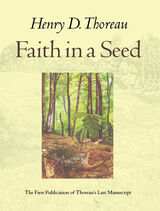
Faith in a Seed contains the hitherto unpublished work The Dispersion of Seeds, one of Henry D. Thoreau's last important research and writing projects, and now his first new book to appear in 125 years.
With the remarkable clarity and grace that characterize all of his writings, Thoreau describes the ecological succession of plant species through seed dispersal. The Dispersion of Seeds, which draws on Charles Darwin's theory of natural selection, refutes the then widely accepted theory that some plants spring spontaneously to life, independent of roots, cuttings, or seeds. As Thoreau wrote: "Though I do not believe a plant will spring up where no seed has been, I have great faith in a seed. Convince me that you have a seed there, and I am prepared to expect wonders."
Henry D. Thoreau's Faith in a Seed, was first published in hardcover in 1993 by Island Press under the Shearwater Books imprint, which unifies scientific views of nature with humanistic ones. This important work, the first publication of Thoreau's last manuscript, is now available in paperback. Faith in a Seed contains Thoreau's last important research and writing project, The Dispersion of Seeds, along with other natural history writings from late in his life. Edited by Bradley P. Dean, professor of English at East Carolina University and editor of the Thoreau Society Bulletin, these writings demonstrate how a major American author at the height of his career succeeded in making science and literature mutually enriching.

This description of the Americanization of a European institution, the Puritan ministry as it was transported to the New England colonies in the seventeenth century, offers a host of new insights into American religious history. By focusing on such areas as the ministers’ authority, church membership, and ecclesiastical organization, David D. Hall shows that, although the effects of the American experience might be considered liberalizing or democratizing in the first years of settlement, during the entire course of the seventeenth century the New World environment produced an institutional development that returned the churches to forms and doctrines that existed before the emigration from Europe.
The Faithful Shepherd not only sustains a bold thesis about Americanization but also affords the reader one of the freshest and most comprehensive histories of the seventeenth-century New England mind and society. This new printing contains a new introduction reflecting on how our understanding of seventeenth-century New England has developed since the book was first published.
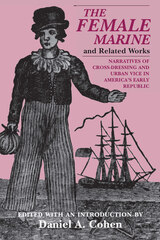
The alternately racy and moralistic narrative recounts the adventures of a young woman from rural Massachusetts who is seduced by a false-hearted lover, flees to Boston, and is entrapped in a brothel. She eventually escapes by disguising herself as a man and serves with distinction on board the U.S. frigate Constitution during the War of 1812. After subsequent onshore adventures in and out of male dress, she is happily married to a wealthy New York gentleman.
In his introduction, Daniel A. Cohen situates the story in both its literary and historical contexts. He explains how the tale draws upon a number of popular Anglo-American literary genres, including the female warrior narrative, the sentimental novel, and the urban exposé. He then explores how The Female Marine reflects early-nineteenth-century anxieties concerning changing gender norms, the expansion of urban prostitution, the growth of Boston's African American community, and feelings of guilt aroused by New England's notoriously unpatriotic activities during the War of 1812.
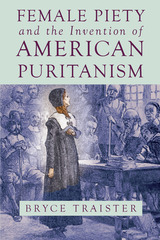
Uncovering the feminine interiority of New England Protestantism, Female Piety and the Invention of American Puritanism positions itself against prevalent historical arguments about the rise of secularism in the modern West. Traister demonstrates that female spirituality became a principal vehicle through which Puritan identity became both absorbed within and foundational for pre-national secular culture. Engaging broadly with debates about religion and secularization, national origins and transnational unsettlements, and gender and cultural authority, this is a foundational reconsideration both of American Puritanism itself and of “American Puritanism” as it has been understood in relation to secular modernity.
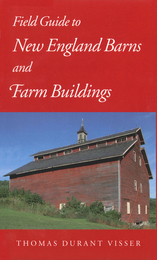
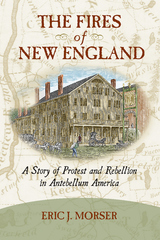
Few people embraced the manifesto and its radical message. Nonetheless, as Eric J. Morser illustrates in this eloquently written and deeply researched book, the address matters because it reveals how commercial, cultural, political, and social changes were remaking the lives of the men who drafted and shared it in the 1830s. Using an imaginative range of sources, Morser artfully reconstructs their moving personal tales and locates them in a grander historical context. By doing so, he demonstrates that even seemingly small stories from antebellum America can help us understand the rich complexities of the era.
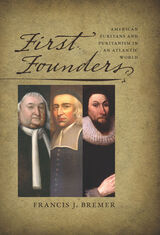
This is a truly fascinating look at the Puritans with keenly drawn portraits and the insight that only a lifetime of scholarship can achieve. It should become the standard introduction to the field. Written in the mold of Joseph Ellis's Founding Brothers and Gordon Wood's Revolutionary Characters, the book will appeal to general readers, students, and scholars alike.

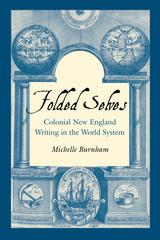

READERS
Browse our collection.
PUBLISHERS
See BiblioVault's publisher services.
STUDENT SERVICES
Files for college accessibility offices.
UChicago Accessibility Resources
home | accessibility | search | about | contact us
BiblioVault ® 2001 - 2024
The University of Chicago Press









